| Just outside the Rawdah (tomb of the Prophet in Al-Masjid al-Nabawi, i.e. The mosque of the Prophet) (Photo credit: Omar A.) |
| Prophetic inspiration: Isaiah's Lips Anointed with Fire, by Benjamin West (Photo credit: Wikipedia) |
| Sodom (Photo credit: Jan Kjellin) |
| Lord Mayors State Coach 1 (Photo credit: Gauis Caecilius) |
| Lord Howe Island snorkeling - Double headed wrasse clown fish and others (Photo credit: Percita) |
| Prophets (Photo credit: Travis S.) |
| From The Historical Atlas by William R. Shepherd, 1923. via http://www.lib.utexas.edu/maps/historical/history_middle_east.html Category:Historical maps by William R. Shepherd (Photo credit: Wikipedia) |
| Capernaum, Sea of Galilee (Photo credit: Wikipedia) |
| Porque sin máiz no hay pays (Photo credit: sarihuella) |
| Sodom (Photo credit: Midness) |
| Capernaum Roman-era olive mill in the ruins of the town. (Photo credit: Wikipedia) |
| Christ and The Pharisees (Photo credit: Wikipedia) |
| Deutsch: Synagoge in Kafarnaum (Photo credit: Wikipedia) |
| Sin título-Perú- (Photo credit: Carles Cerulla) |
| Goltzius Lot and his Daughters manipulated version. Goltzius' painting Lot and his daughters (Rijksmuseum Amsterdam) shows Lot being seduced by his two daughters. Sodom and Gomorrah are shown burning in the background, with Lot's wife who had turned into a pillar of salt, in front. (Photo credit: Wikipedia) |
| Dispute of Jesus and the Pharisees over tribute money (Photo credit: Wikipedia) |
| 1662 Jansson and Hornius Map of the Holy Land, Israel, and Palestine - Geographicus - HolyLand-jansson-1662 (Photo credit: Wikipedia) |
| SIN EDITAR (Photo credit: angel almanzo grupo 52) |
| Part of a three-piece folding screen with a total of six biblical sceens (see Other versions below for the three top paintings). (Photo credit: Wikipedia) |
| English: Fleeing Sodom and Gomorrah Русский: Бегство Лота из Содома (Photo credit: Wikipedia) |
| Blood: The Natural Lubricant (An Apocalyptic Adventure Beyond Sodom and Gomorrah) (Photo credit: Wikipedia) |
| English: Dead sea, panorama (1895) (Photo credit: Wikipedia) |
| "Destruction of Sodom and Gomorrah" - NARA - 559135 (Photo credit: Wikipedia) |
| Lot leaving Sodom, Woodcut from the Nuremberg Chronicle (Photo credit: Wikipedia) |
| English: Lot Flees as Sodom and Gomorrah Burn (Gen. 19:1-20,24-36) Русский: Истребление Содома и выход из него Лота (Быт. 19:1-20,24-36) (Photo credit: Wikipedia) |
| Sodom and Gomorrha, Alte Pinakothek, Room 23 (Photo credit: Wikipedia) |
| The Destruction Of Sodom And Gomorrah, a painting by John Martin (painter), died 1854, thus 100 years. (Photo credit: Wikipedia) |
| ghost god (pike and 12th) (Photo credit: Dylan) |
| Getup Get God (Photo credit: prettywar-stl) |
| God's Vaginal Liquid Omnipresence baptized us with Her Eternal Divinity tonight (Photo credit: nayrb7) |
"Come, now, and let us reason together, says the Lord: though your sins be as scarlet, they shall be as white as snow; though they be red like crimson, they shall be as wool." (Isa. 1: 18.)
The method of the ancient prophet was very different from a modern literary writer. He did not sit down in his library and calmly dictate his message in flowing periods and paragraphs, but in some public concourse or in the temple court, he suddenly appeared and, with dramatic pose and gesture, poured forth a torrent of vehement eloquence, sometimes of stern denunciation, sometimes of solemn warning, sometimes of tender appeal and expostulation. These were afterwards gathered up and published, not as a series of logical addresses, but with all the dramatic irregularity of their first utterance. They resembled not so much the current of some flowing river pursuing its tranquil course to the sea, but rather were like some volcanic stream rolling down the mountain side, and gathering up in its course the rocks and trees of the mountain, or turned aside in its fiery course by the obstructions that it meets on its way and then sweeping on again in some new channel with its mingled current of lava and earth. While the critical eye would fail to find much logical connection, yet the eye of faith can discern through every prophetic message an unbroken thread of spiritual connection and one uniform message of divine reproof and mercy.
The first chapter of Isaiah was probably the first of the prophet's public messages, and it is a good sample of many others. It may be described generally as a message concerning sin and salvation. Its form is most dramatic. Suddenly appearing in the temple court or the public square, with impressive gestures he calls the attention of the multitude by repeating the very words with which Moses had begun his last message to Israel. "Hear, oh heavens," he cries, "and give ear, oh earth, for the Lord has spoken."
Then he arraigns the nation before the bar of heaven and calls as his witnesses the heavens and the earth and the very dumb brutes of the lower order of creation, whose fidelity to their masters is a silent reproof to the disobedience of God's people. Then follows the arraignment of the sinful nation as he proceeds to characterize the unnaturalness, ingratitude and fearful wickedness of the people, declaring at last that their wickedness has almost brought them to the condition of Sodom and Gomorrah.
Then there seems to have come some voice of protest or defence from some one in the multitude, calling attention to their costly worship and offerings as a proof of their loyalty to God. But this only calls forth a more vehement denunciation of their wickedness, and the prophet proceeds to tell them that the very worst thing about them is their religion, inasmuch as it is a cloak of hypocrisy to cover their sins, and that their prayers and sacrifices are not only rejected, but are an abomination to God so long as their hearts are corrupt and their "hands are full of blood."
At last the voice of denunciation is changed to one of mercy. The loving heart of God seems to grow weary of reproof and longs to pour itself out in mercy and compassion. One is reminded of the time when the Lord Jesus Himself on earth had upbraided the cities of Galilee for rejecting His message and had begun to say to them, "It shall be more tolerable for Tyre and Sidon at the day of judgment than for you. And you, Capernaum, which are exalted unto heaven, shall be brought down to hell; for if the mighty works which had been done in you had been done in Sodom, it would have remained until this day. But I say unto you, that it shall be more tolerable for the land of Sodom in the day of judgment than for you."
But at that moment the Master's heart seemed unable longer to endure the pain of His own reproof, and suddenly He breaks out into an appeal of unspeakable tenderness as perhaps He sees in the multitude before Him some weeping face or penitent heart. "Come unto Me," He cries, "all you that labor and are heavy laden and I will give you rest."
There is a similar revulsion of feeling a little later in His ministry, when after He had pronounced upon the Pharisees the fearful woes of the twenty-third chapter of Matthew, He suddenly pauses again and breaks out with an appeal of divine compassion, "Oh, Jerusalem, Jerusalem, you that kill the prophets and stone them that are sent unto you, how often would I have gathered you together, even as a hen gathers her brood under her wings, and you would not."
Such a change comes over the prophet's message here. Suddenly his denunciations close, and turning to the people with tones of tenderness he cries, "Come now and let us end our reasoning; though your sins be as scarlet, they shall be as white as snow; though they be red like crimson, they shall be as wool; if you be willing and obedient you shall eat the good of the land, but if you refuse and revolt, you shall be devoured with the sword, for the mouth of the Lord has spoken it."
I. Sin.
The prophet gives us a graphic picture of sin and its aggravations.
1. It is contrary to nature. The very heavens and the earth are appealed to against it. The stars in their course follow the laws of nature. The earth pursues her orbit in obedience to the great principle of gravitation. There is harmony everywhere in the material universe and the slightest breach of law brings collision, confusion and destruction. Man alone defies the laws of his being and the will of his Creator and involves himself in catastrophe and destruction. The mute creatures of the lower orders of animal life are appealed to against us. "The ox knows his owner," and patiently and obediently follows the furrow and goes to the altar of sacrifice without a murmur. The ass, usually accounted foolish and obstinate, knows at least where its fodder is found and finds its way to its master's crib rather than to the weeds and thistles of the wilderness.
Man alone turns away from the true source of all his supplies and blessings and "hews out for himself broken cisterns that can hold no water." The stupendous folly and unnaturalness of human sin is vividly brought out by this appeal to the very lowest order of the natural creation.
The instincts of human nature are opposed to man's sin. "I have nourished and brought up children," is the complaint of the divine Father, "but they have rebelled against Me." Human nature prompts man to filial love. The heathen Chinese understand the rights and claims of parents to the respect and obedience of their children, and, without the knowledge of God's Word to guide them, they present a beautiful example of devotion to filial duty. But Israel, although treated with more than paternal kindness by the divine Parent, has made no return, but even lifted his puny arm in rebellion against the loving heart that nourished and brought him up as a child.
2. Sin is contrary to reason.
"My people do not consider"is God's next complaint. Sin results from inconsiderateness. It is contrary to all right reason. God does not require our obedience and service for His glory and greatness, but for our good. His commandments are founded upon inherent righteousness, and disobedience must bring suffering and loss just as certainly as the transgression of any law of nature must be followed by a corresponding retribution. Just as surely as a straight line is the shortest road to a given point, so righteousness and obedience bring to us happiness and reward. As certainly as the fire will burn us if we touch it and the precipice will destroy us if we plunge over its verge, so our going contrary to the will of God must bring to us calamity and misery. Common reason should teach us this.
Therefore "the fear of the Lord is the beginning of wisdom and a good understanding have all they that keep His commandments;" while, on the other hand, the sinner is a "fool," and disobedience is not only wickedness, but it is bad judgment and reckless folly. It was when the prodigal "came to himself" that he began to go back to his father, and so salvation is a coming to our right mind and a turning back from the path of foolishness as well as sin.
3. Sin is a weight that drags us down. "Ah, sinful nation, a people laden with iniquity." Iniquity is spoken of as a burden, a handicap, a weight that drags us down. The Lord appeals to sinners as "heavy laden." Truly, "the way of transgressors is hard." Oh, the load of anxious care, remorseful fear and burning shame that the sinner carries! Oh, the expedients to which he has to resort to hide his tracks and bury the consequence of his sins! Oh, the darkness and despair of the after view of the sinful pleasure that looked so alluring when seen from the front! Oh, the lives that are being dragged down to untimely graves, to hopeless despair, to suicide and even to madness by the fearful load of sin! Bunyan represents it under the figure of the pilgrim with the burden upon his back; and our blessed Lord is represented as bearing the sinner's load and finding it so heavy that it crushed out His life on Calvary.
"Oh, Christ! what burdens bowed Thy head,
Our load was laid on Thee."
Such is the millstone bound to the neck of every sinner that is surely dragging him down. "Laden with iniquity."
4. Sin is represented as a seed of evil, self-propagating and full of malignant power to reproduce itself. "A seed of evil doers." It is not only the first generation of sin that we have to fear, but its countless brood of evil reproduction. It is like those malignant germs of disease that are all around us in the air, in the elements of nature, bacilli which propagate themselves by millions every hour and take possession of our vital organs and prey upon our very life.
One sin multiplies itself a thousandfold. Cain's first act of unbelief soon grew into a bloody murder and then into an everlasting separation from God. Adam's single disobedience multiplied itself in the ruin of all the race, and your sin is to perpetuate its career of evil in generations yet unborn. You cannot sin alone and you cannot bury your wickedness with your bones.
5. Sin is an infection. "Children that are corrupters." Literally, this means "children that corrupt others." The language suggests some contagious disease which spreads itself to all that come in contact with it. You would not, for any consideration, lie down in the bed in which a smallpox patient had died last night, and yet you are exposing yourselves to the germs of moral infection in the people you meet, in the friends you cherish, in the books you read, in the plays you attend, in the music you hear and in the objects upon which you allow your eyes to gaze. There is pollution in these things. They poison your spiritual health and inject into your souls the germs of mortal disease. Sin is a plague spot in society, a blight to the family, the church, the holiest friendship and every precious thing.
6. Sin is a provocation of the Lord. "They have provoked the Holy One of Israel unto anger." God cannot endure sin. There is something in His holiness which instinctively consumes it. Just as the mother bird drives the serpent from her nest, so God, even as the God of love, is bound by His very goodness to protect His universe from the poison of sin.
Dear reader, you would scarcely dare to go out beneath the naked lightning of the skies and defy your Creator. And yet every sin, the most secret, is an open defiance of the Almighty, and more offensive often because you try to excuse it by some deceitful plea that you did not really mean it. Remember every time you sin you are flying in the face of an angry God.
7. Sin is incorrigible. "Why should you be stricken any more; you will revolt yet more and more." When God's chastening fails to move us, but leads us on to more reckless disobedience, we are in fearful danger. When we can come back from the gates of death or the graveside of some loved friend and quickly forget all the solemn vows we made and all the good resolutions we pledged if God would only try us once more, we are slowly hardening our hearts and preparing ourselves for the sin against the Holy Ghost. There is a story told of one who, feeling badly after an act of sin, was told by Satan, "Do it again and you won't feel so badly," and, as he obeyed, the sensitiveness passed away and he was soon able to commit sin without the reproof of his conscience. This is indeed true, but it is a fearful truth, and such callousness of heart soon leads to the judgment of God, for "he that being often reproved hardens his neck shall be suddenly destroyed and that without remedy." It is mentioned as the most fearful aggravation of the sin of Ahaz that "in the time of his trouble he trespassed yet more against the Lord; thus did that King Ahaz !" It is as if a great note of exclamation had been drawn across the sacred page and a finger pointing to this monster of wickedness whose very warnings seemed only to harden his heart the more.
8. Sin is a vile, loathsome and incurable disease. What a fearful picture! "The whole head is sick and the whole heart faint; from the sole of the foot even unto the head, there is no soundness in it, but wounds and bruises and putrefying sores; they have not been closed, neither bound up, neither mollified with ointment." Sin is soul sickness, desperate, incurable and revolting. Not always does it develop its most loathsome features at the first, but the malignity of the disease is there and sooner or later it will break out into shameless sin and disgusting depravity.
9. Sin is a national curse.
"Your country is desolate, your cities are burned with fire, your land strangers devour it," etc. Has this always been true? The empires and monarchies of the past crumbled to decay through the weight of their own corruptions. Nebuchadnezzar fell through his pride; Medo-Persia through its luxury; Alexander the Great through the success that ruined him; Rome through the moral corruption which undermined society. And, among the kingdoms of Europe, Spain and France are striking examples of the loss of national greatness through the spirit of national corruption. Prosperity leads to luxury, luxury leads to license and self-indulgence, and the mightiest nations of today are drifting to the common lot.
The trouble with human society is not that it wants better principles, better government, better politics, but better materials. It is like the arch which tumbled in ruins and while the experts were discussing the wreck and trying to explain the scientific causes through some defect in the lines of the arch, a common workman picked up a bit of the crumbling brick and, squeezing it between his finger and thumb, it crumbled into dust, as pointing to it he cried, "That is what's the matter with your arch; the brick is rotten." The only remedy for national calamity and degeneration is the transformation of human nature through the grace of the Lord Jesus Christ.
10. Sin brings ruin and desolation to the individual. The picture of Isaiah applies not only to nations and communities, but to families and individuals. Oh, the wrecked homes and lives that have come about through sin, the great destroyer! Dr. Thomas Guthrie has eloquently said:
"Name me the evil that springs not from this root — the crime that I may not lay at its door. Who is the hoary sexton that digs man's grave? Who is the painted temptress that steals his virtue? Who is the murderess that destroys his life? Who is this sorceress that first deceives and then damns his soul? — Sin. Who with icy breath blights the fair blossoms of youth? Who breaks the hearts of parents? Who brings old men's gray hairs with sorrow to the grave? — Sin. Who, by a more hideous metamorphosis than Ovid even fancied, changes gentle children into vipers, tender mothers into monsters, and their fathers into worse than Herods, the murderers of their own innocents? — Sin. Who casts the apple of discord on household tops? Who lights the torch of war and bears it blazing over trembling lands? Who by divisions in the church rends Christ's seamless robe? — Sin. Who is this Delilah that sings the Nazarite asleep, and delivers up the strength of God into the hands of the uncircumcised? Who, winning smiles on her face, honeyed flattery on her tongue, stands in the door to offer the sacred rites of hospitality, and when suspicion sleeps treacherously pierces our temples with a nail? What fair Siren is this, who seated on a rock by the deadly pool, smiles to deceive, sings to lure, kisses to betray, and flings her arm around our neck to leap with us into perdition? — Sin. Who turns the soft and gentlest heart to stone? Who hurls reason from her lofty throne and impels sinners, mad as Gadarenes' swine, down the precipice, into a lake of fire? — Sin."
II. Sin seeks to veil its vileness by the cloak of religion. They pleaded their costly and splendid worship, the multitude of their sacrifices and offerings as some excuse for their faults. But the prophet tells them that this is the very worst thing about their sin; that it culminates in hypocrisy and tries to make religion a substitute for righteousness. The world has plenty of religion but the devil uses it as a channel for the very worst forms of sensuality, licentiousness and sin. God will not accept the worship of insincere hearts and impure hands. Sin prevents His answering our prayers, for "if we regard iniquity in our heart, then God will not hear us." Sin defiles our most sacred offerings. Sin makes our religion the very worst of all our crimes. "Bring no more vain oblations" is Jehovah's cry, "incense is an abomination to Me. It is iniquity, even the solemn meeting. Your new moons and your appointed feasts My soul hates, and when you spread forth your hands I will hide My eyes, yes, when you make many prayers I will not hear you; your hands are full of blood."
The two words which express the character of Judah, as given by Isaiah are wickedness and worship. They had plenty of worship, costly worship, splendid worship, but it was stained with sin, and more offensive to God than even their grossest crimes.
Beloved reader, is your very religion cursed by your unrighteousness? Are your prayers neutralized by your unhallowed lives, and are you shutting the very gates of mercy against your poor soul by your presumptuous sins? Oh, stop and consider before the day shall come of which He has spoken, "Then shall they call, but I will not answer them; they shall seek Me early but they shall not find Me."
12. Their sin was indelible, incurable and inveterate. The strong adjectives used in our text, "scarlet" and "crimson," describe not merely the deepest tint possible but a kind of dye that was absolutely indelible. It was made from the eggs of a certain insect, and the stain could never be effaced. The word literally means "double-dyed." There is no earthly power can take away the stain of human depravity. Culture will not do it. Educate and refine a monster, but at heart he is a monster still. They tell a quaint story of an Oriental despot, who among his queer pets had a little educated pig, which he dressed up in costly raiment, with jeweled rings and chains of gold, but whenever he let it free to gambol in the garden, it invariably plunged into the ditch, and came back defiled with mire and filth. At last he threatened it with death if it ever transgressed again. As it lay that night in terror of the morrow, knowing that the old habit would come back again and plunge it in the ditch once more, a nymph came to its side and offered to cure its swinish heart; and then, the juvenile legend tells us, the nymph took a little lamb and by a surgical operation took out its heart, and after a similar operation on the pig, exchanged the two hearts, and transferred the heart of the lamb to the heart of the trembling little culprit. Next day it was all right, and with the nature of the lamb it loved to gambol in the green fields and keep itself pure. The king was delighted and the pet was saved.
The foolish parable tells the story of the helplessness of the human heart apart from the grace of God. Let us find it out as quickly as we can, for true hope can only begin when we come to self-despair.
II. Salvation.
1. Repentance. The first step in our deliverance from sin is one that we must take. There is something we can do. "Wash you, make you clean, put away the evil of your doings from before My eyes, cease to do evil and learn to do well." This is the preliminary step to every transformed life. You must refuse the evil. You must say "No" to sin. You must give God the right to make you holy. You cannot make yourself holy, but you can consent that He shall. Are you sick enough of sin to do this? Are you ready to take the first step which the old soldier so well described as "right about face." That is what the word repentance really means. It is to look the other way, to think the other way and to change your attitude towards sin and God.
2. Mercy. "Though your sins be as scarlet, they shall be as white as snow; though they be red like crimson, yet shall they be as wool." There is a double process here. The first is expressed by the figure of the snow. It does not cleanse, but it covers our sin. After the first fall of the virgin snow, your backyard has still the old refuse there, but the snowy mantle covers it immediately. This is what God does for every sinner when He justifies him through the blood and righteousness of Jesus Christ. This is the imputed righteousness of Christ, and the vilest sinner may accept it, and in a moment be covered by the spotless robe of the Redeemer and be as white as snow. The other process is deeper and more intrinsic. The cleansing of the wool suggests the finest fibers of our nature, and represents that sanctifying work which the Holy Spirit accomplishes in the soul that yields to Him. That begins with the work of regeneration and reaches on to all the fulness of the Spirit until we are completely transformed into the image of the Lord Jesus Christ, and every fiber of our being is spotless as His holy nature.
3. The act by which we become partakers of all this grace is an act of the will. "If you are willing and obedient, you shall eat the good of the land." It is not an emotional feeling merely that brings us into contact with the grace of God, but it is a choice, a decision, a fixed purpose. "Whosoever will, let him take the water of life freely." Shall we meet this simple, practical condition, and with the whole strength of our will say "no" to sin and "yes" to God forevermore?
4. The sequel of all this is an obedient life. "If you be willing and obedient." The essence of sin was disobedience, and the remedy for sin is a life of willing love and obedience to Him who only asks us to obey Him because it is best for us.
5. And finally, the blessed recompense. "You shall eat the good of the land." Oh, how good the land of obedience is to its happy children here, and how glorious the inheritance to which it leads forevermore!
God help us to see our sin, to accept His salvation and to walk with Him in holy obedience and happy fellowship.



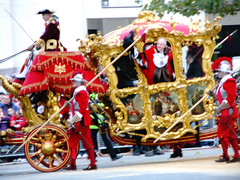
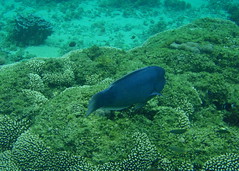

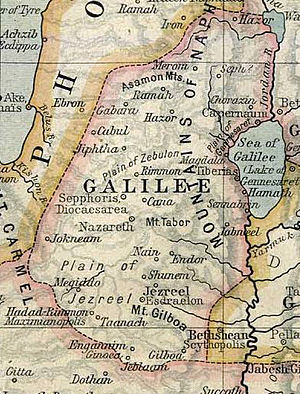
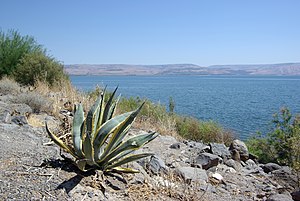

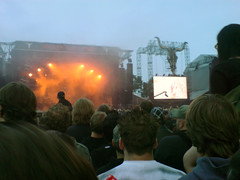
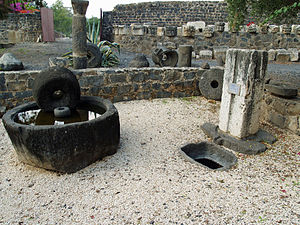


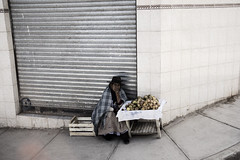
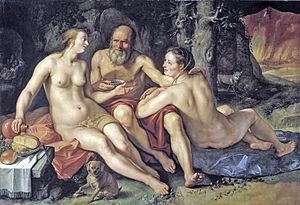

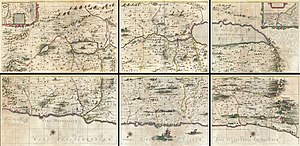
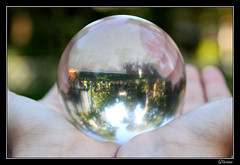

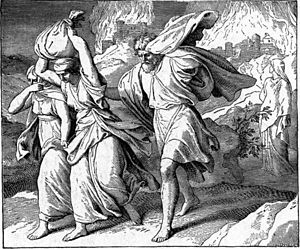







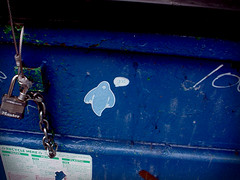

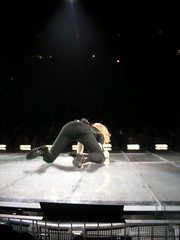



No comments:
Post a Comment